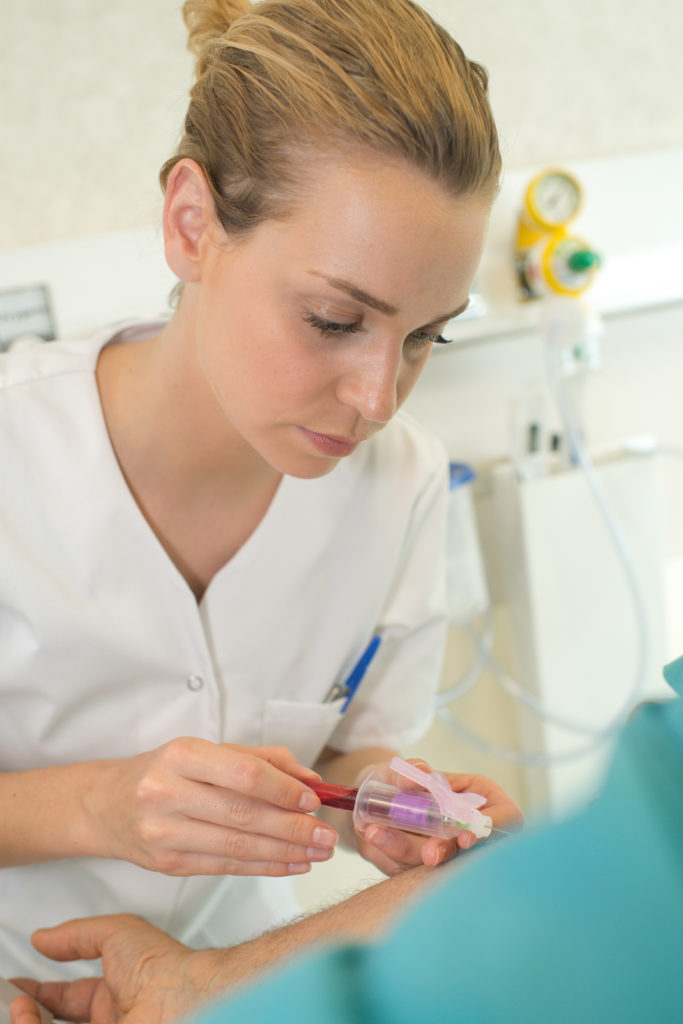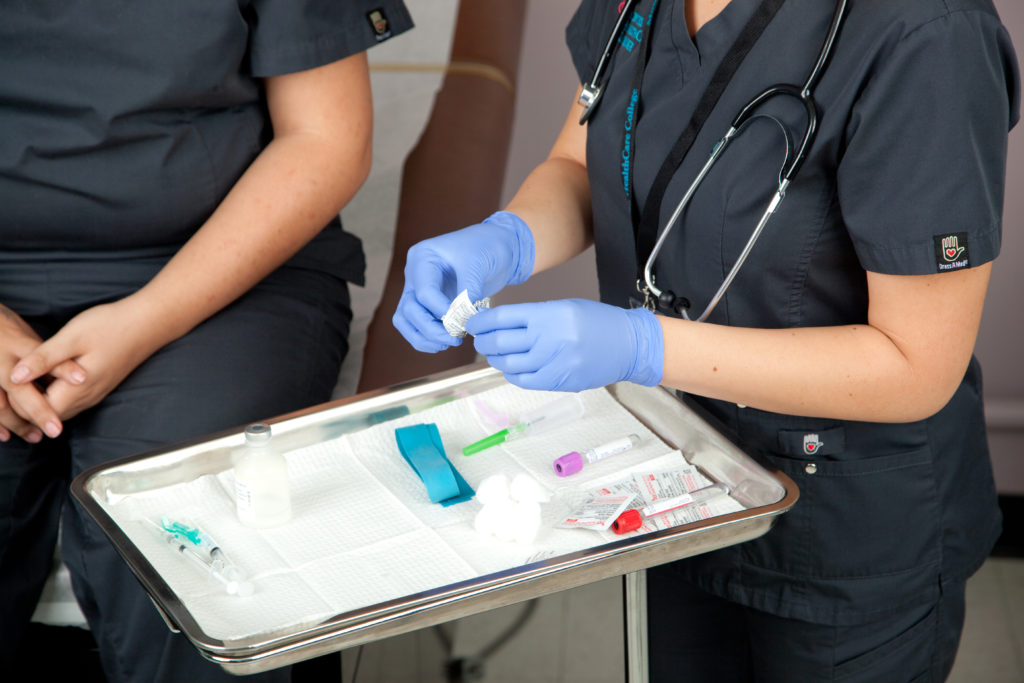Discovering the root cause of a patient’s discomfort can be an extensive process, and phlebotomists are often at the forefront of that process. As a phlebotomist, your responsibility is to provide doctors and other medical staff with vital information needed to help the sick. This position was made for the curious who enjoy working in the medical lab.
If you are considering a career in medicine, choosing to become a phlebotomist can be an excellent first step. Beyond feeding your curiosity, the job provides several perks. Below are four reasons why you should consider this position. If you’re already interested, get in touch with our team here at Montes HealthCare College. We offer a phlebotomy program that can provide you with the skills you need in just 88 total hours.
Reason 1: The Job Offers Great Security
With the aging baby boomer population, the job market is expected to see an increased need for medical professionals. According to the Bureau of Labor Statistics, the field of phlebotomy, in particular, is expected to grow by as much as 22% between 2020-2030. This increase is higher than average and means that as a trained professional, you will have no trouble finding a position.
Phlebotomists can find employment in medical offices, hospitals, and clinics. While environments and duties may vary, the ongoing need for more of these experts means that you can feel secure, even when relocating.
How Much Do Phlebotomists Make?
Phlebotomists in the U.S. earn a median salary of $43,660 per year. In high-demand areas or specialized clinics, salaries can be even higher, depending on your experience, location, and the type of facility you work in.
What is the Phlebotomist Salary in California?
Salaries in California are about 15% higher than what phlebotomists make nationwide.
The average salary for a phlebotomist in California is around $63,570 per year. Entry-level positions typically start at about $48,250, while the most experienced professionals can earn up to $83,755 or more, especially in high-demand cities and specialized healthcare settings.

Reason 2: A Phlebotomist’s Role is Essential
As a phlebotomist, your responsibilities are essential for saving lives. Doctors and other medical staff depend on your expertise to properly treat patients. While this level of responsibility may not be for everyone, knowing that you play an important role can be rewarding.
The information retrieved by phlebotomists is essential in diagnosing and treating many life-threatening diseases. Including:
- High cholesterol levels
- Low blood glucose levels
- Infections
- Anemia
- Leukemia
- HIV and AIDS
- Hepatitis
- Certain cancers
- Blood clotting disorders
- Thyroid disorder
- Reduced Liver function
Reason 3: A Phlebotomist Has Many Options
Working as a phlebotomist is often viewed as the first step in a medical career. Far from a dead-end, this position exposes you to a wide variety of possibilities. You will be working with medical professionals in various roles, some of which may entice you to take your career to the next level.
Many phlebotomists move on to other allied healthcare careers. They become primary care workers, diagnostic professionals, and rehabilitation specialists. Some change gears altogether and take on more administrative roles. With a position like this, you have free reign in identifying your ideal path forward.
Reason 4: Phlebotomy Training is Manageable
Often, the high tuition costs of becoming a doctor, along with the extensive education needed, are the two factors that drive prospective students away from the field. Thankfully, phlebotomy offers the opportunity to get involved in medicine without the high costs or extensive programs.
Here at MHCC, our phlebotomy course is offered in a set of three modules. These include:
- Basic Phlebotomy Module: Here, you learn about basic infection control, anatomy, medical terminology, blood collection, and more. This section is meant as an introduction to the field.
- Advanced Phlebotomy Module: Here, advanced infectious disease control, biohazards, and professional conduct are explored. This section is a mix of more advanced aspects of the job and communication with staff members as well as patients.
- Phlebotomy Externship: This part of the program is an externship where you can apply what you have learned in a clinical setting under professional supervision. Satisfactory completion of the externship training, including performing 50 successful venipunctures and 10 successful skin punctures, is required for program completion.
How Long Does it Take to Become a Phlebotomist?
At Montes HealthCare College, it takes just 88 total hours of training to become a phlebotomist. That includes classroom instruction, hands-on practice, and a clinical externship. In a matter of weeks, you can gain the skills and experience needed to start working in the field.
How to Become a Phlebotomist?
If you’re interested in trying our new phlebotomy program, get started by scheduling a tour of our campus today. To get in touch, simply dial (424) 373-8211 or click HERE.
Along with campus tours, we also offer students the opportunity to experience a real class before committing to a tuition payment schedule. Get in touch and attend one of our class sessions to see if our programs are right for you. No payment is necessary; simply contact us to request a pre-enrollment class audit.
FAQ
How to Become a Phlebotomist in California?
To become a phlebotomist in California, you’ll need to complete an approved training program and meet state certification requirements. That means classroom learning, hands-on practice, and successful completion of both venipunctures and skin punctures.
At Montes HealthCare College, we make that process simple. Our 88-hour phlebotomy program includes all the training and clinical experience you need to get certified and job-ready. If you’re ready to start your healthcare journey, join our program and take the first step today.
Can a Nurse Become a Phlebotomist?
Yes, absolutely. Nurses already have a strong foundation in patient care and clinical procedures, so transitioning into phlebotomy can be straightforward.
Can Anyone Become a Phlebotomist?
Pretty much, yes. You don’t need a medical background or a college degree to get started. What you do need is attention to detail, a steady hand, and a genuine interest in helping others. Our program is built for beginners and career changers alike. Whether you’re just out of high school or shifting from another industry, phlebotomy is an accessible, fast-track way into healthcare.

